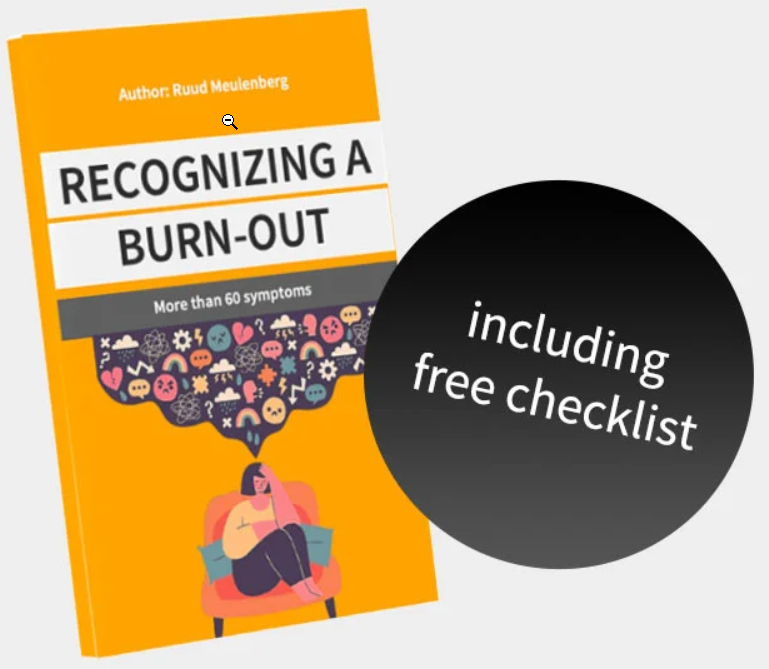Today’s fast-paced world is full of different demands that require your attention and energy input for all to go as planned. Stress is when your body and mind are unable to cope with all the events and demands and is often considered a chronic condition. These demands may arise from relationships, work, and financial pressures. Anything that poses a perceived or real challenge to someone’s well-being can easily result in this condition.
Alternatively, it can turn out to be a motivator or an essential to survival, and the body’s fight-or-flight mechanism lets a person know when and how they should respond to situations meant to steal their peace and joy. Like adults, children too can be attacked by this chronic condition due to different life circumstances like negative home situations and violence in learning institutions.
What is stress?
It is how the body reacts when it feels threatened or under pressure, and it is a common feeling that attacks you when you cannot cope with what life throws at you. While small levels can act as a motivating factor and push you toward achieving a certain life goal, high-stress levels can potentially make you feel out of control, negatively impact your mood and affect your general physical and mental well-being.
A clear understanding of what this condition is and how it impacts your life is helpful in making you understand how to behave and respond to stressful situations when the need arises. The ability to cope with it depends on one’s early life events, personality, genetics, and social and economic circumstances. When stressed, the body produces hormones that activate the immune system and trigger the fight-or-flight response.
The immune system activation comes through for you in responding quickly, especially in dangerous and life-threatening situations. Once the stressful situation is over, the stress hormone levels return to normal, and the body is signalled to adjust to its usual stress-free state. However, too much stress leads to negative effects. It can leave you feeling vulnerable, overwhelmed, and unable to cope, which in turn leads to deterioration in your physical and mental health.
What are a few common causes of stress?
The pressures and situations that lead to this chronic illness are known as stressors. Stressors can be negative such as experiencing exhaustion due to a strict work or school schedule or a toxic relationship. On the other hand, it can also arise due to positive life changes such as getting married, joining college, or purchasing a house. Not all levels are a result of external factors, as some can be caused by internal factors or be self-generated.
Stress turns out to be self-generated when you constantly worry about a life-changing event that you seemingly have no control over. In part, what causes it depends on your perception of it, as what might appear stressful to you may not be stressful to another person.
Common external causes are such as:
- Financial problems
- Relationship difficulties
- Experiencing major life changes
- Pressure from school or work
Some of the most common internal causes include:
- Negative self-talk
- Pessimism
- Unrealistic goals and expectations
- Rigid thinking
- Bad attitude toward life
Life events that can contribute to the condition are such as:
- Marriage
- Divorce
- The demise of a loved one
- Retirement
- Job loss
- Imprisonment
No matter what the contributing factor is, there are amicable ways of coping with the situations and ensuring the chronic condition is put under control. The main causes are:
1. Financial stress
People from different walks of life respond differently to stressful situations involving finances, especially during difficult unpromising times. Whether it is due to escalating debt, loss of work, or unexpected expenses, financial worry is a major cause of this condition more so in the modern world.

2. Unemployment or Job Loss Stress
It is normal to feel hurt or angry upon losing a job because you will be grieving and naturally responding to an unexpected loss. Unemployment can also cause shifts in your self-worth and self-esteem, leading to overwhelming stressful emotions.
3. Grief and Loss
One of the biggest stressors in life is having to cope with the demise of a loved one. The stress of loss can be overwhelming, and you may experience different emotions that you have no idea how to take control of. Untreated levels can take a toll on your life and lead to burnout.
4. Stress at Work
Stressful conditions that are work-related can appear normal, but excessive levels interfere with your performance and productivity, eventually impacting your mental, physical and emotional health. This also affects how you relate with people both in and out of the work environment and can sometimes be a determining principle between job success and failure.
What are the Symptoms of Stress
It affects all aspects of your life, including thinking ability, behavior, emotions, and physical health. Its symptoms can vary because different people have different ways in which they manage their emotions. The symptoms can either be vague or appear similar to those of other medical conditions. Depending on your response technique, the symptoms can also be emotional, physical, behavioral, and cognitive.
Some of the emotional symptoms include:
- Avoiding being in the company of other people
- Becoming easily frustrated, agitated, or moody
- Depression, low self-esteem, or feeling of unworthiness
- Feeling overwhelmed and failing to take full control of situations, both negative and positive
The physical symptoms are such as:
- Insomnia
- Headaches
- Rapid heartbeat and chest pain
- Tense muscles, including aches and pains
- Stomach upset leading to nausea, constipation, and diarrhea
- Grinding teeth and clenched jaw
- Frequent infections and colds

Download our
free e-book
Recognizing a burnout
(more than 60 symptoms)
The behavioral symptoms of stress include:
- Procrastination
- Drug abuse
- Nervous behaviors such as fidgeting and nail-biting
- Appetite changes
The cognitive symptoms are:
- Racing thoughts
- Poor judgment
- Inability to focus
- Being pessimistic in all situations
It is considered part of a human’s daily interactions, and little levels may not be a cause for alarm. However, ongoing levels are dangerous and should be dealt with before the condition gets dire.
The Effects of Stress on Our Bodies
The condition is a natural mental or physical reaction to life circumstances. All body systems are affected by this condition, including respiratory, cardiovascular, nervous, endocrine, reproductive, and musculoskeletal systems, among others.
Musculoskeletal System
The muscles are tensed up whenever the body undergoes overwhelming situations, which is how to guard against pain or injury. Tensed or taut muscles that extend for longer periods lead to stress-related disorders like migraines. Musculoskeletal pain in the upper extremities and lower back is also linked to the chronic illness and can be treated through therapy.
Cardiovascular System
This system comprises the heart and blood vessels which work together to supply the body with oxygen and nourishment to body organs. Acute stress increases heart rates and stronger heart muscle contractions, which alters the body’s normal functioning.
In addition, it can lead to dilation of the blood vessels pumping blood to the heart and other large muscles, which increases the amount of blood being pumped, thereby leading to high blood pressure, stroke or hypertension.
Respiratory System
The respiratory system works to supply cells with oxygen and eliminate carbon dioxide, which may be toxic to the body if not eliminated. Strong emotions and stressful situations can potentially lead to rapid breathing or shortness of breath which is a real challenge, especially for people suffering from respiratory conditions such as asthma.
Gastrointestinal System
The gut is made up of millions of neurons that are always in constant communication with the brain and function fairly to make the body conscious of the different feelings one experiences daily. Due to high-stress levels, brain-gut communication can be altered, leading to bloating, pain, and other kinds of discomfort in the gut.
In addition, millions of bacteria also inhabit the gut, which contributes to its health and the brain’s health; hence they have an impact on emotions released by the brain and the way of thinking. Stress can lead to changes in the gut bacteria, which influence mood and the general functioning of the brain.
Esophagus
Individuals are likely to consume more or less food depending on the level of stress they are going through. Different foods in different quantities can lead to acid reflux or heartburn. Moreover, an increase in stress-related hormones leads to increased heartburn pain, which may disrupt normal daily operations.
Due to the condition, food swallowing may also be difficult, leading to an increase in the amount of air being introduced into the stomach. This leads to burping, bloating, or gassiness.
Bowels
It can affect the movement of food in the bowels, and this leads to constipation or diarrhea. Furthermore, it can also lead to pain in the bowels by inducing muscle spasms. Moreover, it can also affect the type of nutrients absorbed by the intestines and the general digestion process.
The Positive Effects of Stress
Scientifically, positive stress is referred to as eustress, and it is the spark that pushes the body to achieve more and improve the quality of life. Some of the positive effects include:
It boosts brainpower
Low-stress levels help produce neurotrophins, which are brain chemicals that strengthen the connection between the brain and neurons and help boost concentration and productivity.
It helps to increase short-term immunity
During a response, the body prepares itself to handle whatever situation is about to happen by producing extra interleukin, a chemical that helps regulate the immune system. As a result, the body is provided with a temporary defense mechanism that helps it get through difficult and challenging situations.
It helps contribute to creativity
When stressed, one is afraid of getting out of their comfort zones and moving onto a new path because of fear of the unknown. The condition can accompany a creativity breakthrough and motivate one to think out of the box, grow and adapt to change.
It enhances child development
Children born from parents who went through moderate stressful emotions during pregnancy are likely to show greater developmental and motor skills by the time they reach age two.
It motivates one to succeed
Being stressed about beating a deadline encourages one’s behavior and pushes them to act accordingly so that they can do away with procrastination and achieve their full potential.
When Does Stress Become Harmful to Us
Life is full of everyday challenges that lead to accumulated stressful emotions and lead to irreversible health damage. While some people believe that they perform better under stressful circumstances, consistent levels can make one to consistently make mistakes and lead to more harm than good.
It can be hurtful in ways like:
Difficulty to control emotions
You are likely to lose your cool while stressed compared to when you are calm because the chronic condition impairs your ability to have sober reasoning and control your emotions.
It promotes diseases
The frequently-stressed people are prone to contracting diseases like lung disease, cancer, and liver cirrhosis and running into fatal accidents.
Can we help you?
Leave us your information and one of our coaches will contact you in 24H

It can lead to weight gain
When in stressful conditions, you are likely to consume more food compared to how you could have during normal body operations.
It can ruin the gums and teeth
Some people react to nervous stressful situations by grinding their teeth which may lead to long-term damage to the teeth and jaw.
It contributes to aging
Chronic stress contributes to premature aging by shortening telomeres so that there is stunted growth of new cells.
What Can Unmanaged Stress Do to Us
The longer you go without managing its symptoms, the worse your health is impacted, and the consequences become grave. Stress is the body’s natural way of reacting to threats and communicating that you are going to burnout if you do not take a moment to relax and release the extra tension. As much as it is common, it should not be ignored, and the necessary measures should be taken to control the situation.
Some of the results of unmanaged stress include:
- Burnout
- Insomnia
- Heart disease
- Weakened immune system
- Infertility
- Anxiety
- Stomach problems
- High blood pressure
Failing to address it in due time puts you at a higher risk of experiencing a total health breakdown.
How Can I Reduce Stress in my Life?
Its management has no quick fixture; no single method is ideal for everyone. However, there are simple practices that you can engage in so that you eradicate it from your life and improve the condition of your general health.
Some of the practices that help reduce stress include:
Relaxation and Breathing Exercises
Exercises based on muscle relaxation and breathing come in handy to relieve stressful emotions. Breathing and relaxation exercises can be carried out anywhere and are designed to help the body and mind keep calm even when under tense circumstances.
Let go of the Less Important Things
Letting go of the less important issues helps you to delegate duties to another person and avoid burnout; hence spend more time listening to your body and avoid putting yourself in stressful situations.
Focus Your Time and Energy on What is Important
You can do this by making a list of the things that are important to you and concentrating on the ways to execute them while you avoid what is not doing you any good. Making a conscious decision to focus on the important issues helps in self-elevation and helps you avoid emotional baggage that could not put you in stressful situations.
Talk to Others about your emotions
Talking to others provides relief and gives you a chance to look at situations from different dimensions and come up with better solutions. You can also join a sports club and share ideas with different people having different perspectives on life.
Small Tips to Better Deal with Stress
It is important to recognize stressful situations and how they come and occur, as this allows you to divert all the focus on the appropriate way to react. Some of the small tips to deal with it better include:
- Eat healthy foods
- Exercise more often
- Have enough sleep
- Practice meditation or yoga
- Carve out hobby time
- Take a vacation
- Have some bonding time with your pet
Stress & burnout coaching; for 100% recovery!
Reducing stress and recovering from burnout is simply incredibly difficult. The coaches at Meulenberg Training & Coaching understand exactly what you are going through and know how tough it can be. They have often experienced it themselves! With their years of experience and expertise, they are ready to help you step by step toward a full recovery. The results of our one-on-one coaching and absenteeism training will benefit you for a lifetime!
FAQ
References
- Mind.org.uk – Stress – found on 28-10-2022
Link to page on mind.org.uk - Medlineplus.gov – Stress and your health – found on 28-10-2022
Link to page on medlineplus.gov - Verywellmind.com – What is stress – found on 28-10-2022
Link to page on verywellmind.com






